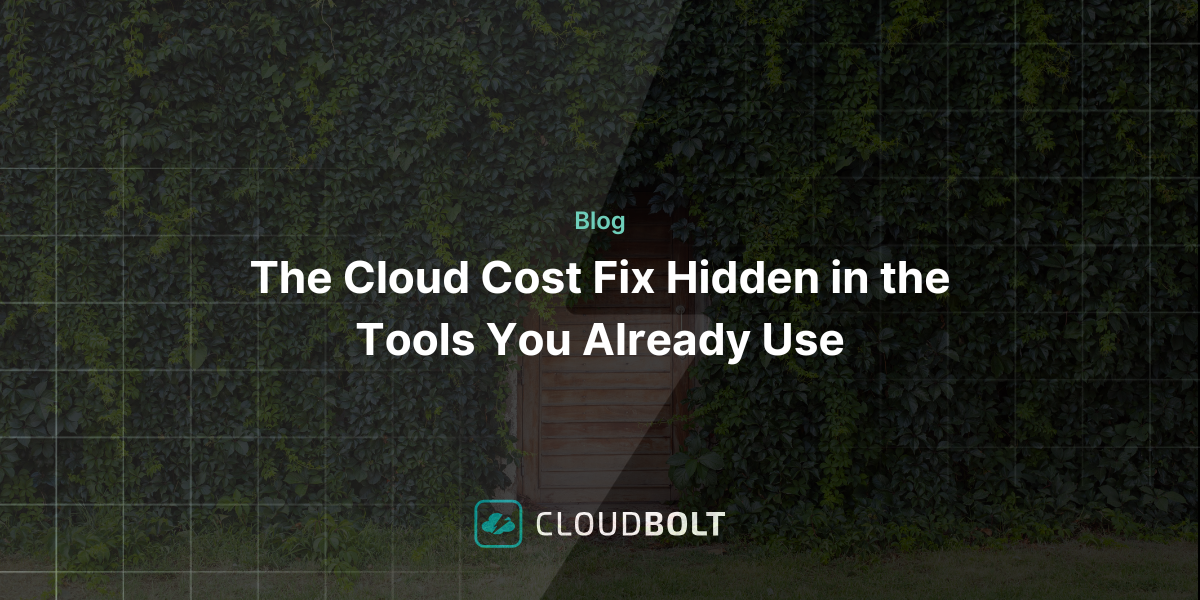Weekly CloudNews: AWS vs. Azure vs. HCI, Kubernetes and Cloud Consolidation
Welcome to this week’s edition of CloudBolt’s Weekly CloudNews!
Earlier this week on the blog, we kicked off the new year with a look at multi-cloud management tools and what cloud orchestration can do for the enterprise.
With that, onto this week’s news:
AWS Outposts vs. Azure Stack vs. HCI
Brien Posey, SearchConvergedInfrastructure, Jan. 8, 2020
“Giants Amazon and Microsoft offer cloud products and services that compete in areas usually reserved for the strengths that traditional hyper-converged infrastructure platforms bring to the enterprise IT table. These include hybrid cloud offerings AWS Outposts, which Amazon made generally available late last year, and Azure Stack from Microsoft.
When it comes to AWS Outposts vs. Azure Stack or standard hyper-convergence, all three platforms have their merits, without any one being clearly superior to the others. If an organization is trying to choose between the three, then my advice would be to choose the platform that does the best job of meshing with the existing infrastructure and the organization’s operational requirements. If the organization already has a significant AWS or Azure footprint, then Outposts or Azure Stack would probably be a better fit, respectively. Otherwise, traditional HCI is probably going to entail less of a learning curve and may also end up being less expensive.”
Learn more here about how CloudBolt’s integration with AWS can transform your cloud.
What Do Customers Want From The Kubernetes Ecosystem In 2020
Janakiram MSV, Forbes, Jan. 6, 2020
“During the last two years, Kubernetes has matured to become the foundation of modern infrastructure. It’s not only the fastest-growing open source project but also becoming the most widely adopted infrastructure technology in enterprises. Major hybrid cloud platforms are now powered by Kubernetes.
While the adoption is growing at a rapid pace, there are two key challenges with Kubernetes – Lack of clear demarcation between the developer and operator experience and lack of application context.”
Check out our recent blog on how Kubernetes is gaining traction.
The Disservice of Cloud Consolidation
Zack Busch, DevOps.com, Jan. 7, 2020
“There’s no secret that over the past five years especially, the major (“tier 1”) cloud infrastructure players—Amazon, Microsoft and Google—have been snatching up smaller specialty providers, particularly cloud migration and security services.
While this acquisition strategy immediately aims to strengthen and expand the provider’s direct and tangential cloud infrastructure offerings, the long-term goal is customer attraction and retention.
In consolidating cloud infrastructure and related services, cloud vendors are targeting a basic human desire that often bleeds over into business decisions: convenience.
Truthfully, the move toward cloud consolidation is a step in the opposite direction from where we should be going. The future lies in a multi-cloud approach, not a consolidated one.”
Discover these tips for multi-cloud success on our blog.
Experience the leading hybrid cloud management and orchestration solution. Request a CloudBolt demo today.
Related Blogs

The End of Manual Optimization: Why We Acquired StormForge
Today is a big day for CloudBolt—we’ve officially announced our acquisition of StormForge. This marks a major milestone for us…

